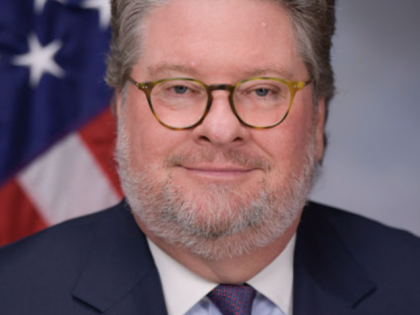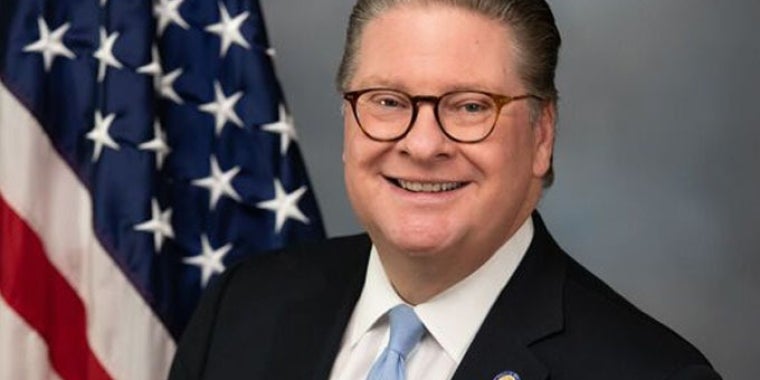
Harckham, Advocates Blast Administration’s Diversion of $21M of McKinsey Opioid Settlement to General Fund
April 16, 2021

Albany, NY – New York State Senator Pete Harckham and leading Substance Use Disorder treatment advocates from around the state roundly condemned today Governor Andrew M. Cuomo’s administration for diverting more than $20 million from the McKinsey & Company opioid settlement agreement to the state’s general fund rather than using the money to increase substance prevention and treatment programs.
“Families and advocates have a right to be outraged by this action,” said Harckham. “This is blood money. Families have a right to know that this settlement is being used in its entirety to incrementally fight the scourge that took the lives of their loved ones. It is obscene to realize that instead of helping to fight our ongoing crisis in opioid overdoses these resources will be used to fill potholes or build walkways to nowhere.”
Last week, New York’s Office of Addiction Services and Supports notified treatment providers around the state that $21 million of the $32 million being received from the McKinsey settlement was being directed to the state’s general fund, while $11 million would pay for medication-assisted treatment (MAT) for incarcerated men and women in the state’s correctional facilities. And rather than increase funding in the OASAS budget, the settlement money simply was used to pay for spending for OASAS, same as last year’s, in this year’s budget.
Harckham, who is chair of the Senate Committee on Alcoholism and Substance Abuse, vowed to push legislation that would create a lockbox for future opioid settlement money, with substance treatment providers and affected families being the sole beneficiaries. The State Senate included a measure along these lines in its one-house 2021-2022 Budget Proposal last month, but it did not make it into the enacted budget.
“No administration should have the ability to use opioid settlement to supplant state aid rather than to supplement the effort,” said Harckham. “We must pass legislation to ensure an ironclad, incremental lockbox for future settlement funds.”
In February 2021 McKinsey & Company reached a $573 million agreement with 47 states to end investigations and settle claims that it helped to “turbocharge” opioid sales for its clients, including Purdue Pharma.
New York State Attorney General Letitia James, who co-led a coalition of attorneys general across the country to forge the settlement with McKinsey, said in an announcement about the agreement, “While no amount of money will ever compensate for the pain of the hundreds of thousands dead, the millions addicted, and the countless families torn apart from opioid addiction, we can ensure that those responsible for the crisis help to fund prevention, education, and treatment programs to stop additional New Yorkers and Americans across the country from becoming addicted to opioids in the first place.”
McKinsey & Company admitted no wrongdoing in its settlements, and agreed to court-ordered restrictions in regard to work involving addictive narcotics. Over the past two decades the opioid crisis has contributed to the deaths of more than 450,000 people in the United States.
“From now on, treatment providers, family representatives and other stakeholders need to be given a seat of the table when decisions are made about how and where opioid settlement is directed,” said Harckham. “With these funds we have an opportunity to make a bigger impact in the overdose crisis. Redirecting funds elsewhere would be a sin against the memory of too many lost lives.”
John Coppola, executive director of the New York Association of Alcoholism and Substance Abuse Providers, said, “If sweeping the McKinsey settlement funds into the general fund black hole is any indication of what New York State is about to do, we are destined to repeat the mistakes made with tobacco settlement funds. It is imperative that the State Senate and Assembly create a lock box that requires pharma settlement funds to be administered by the NYS Office of Addiction Services and Supports and used to support addiction services without supplanting existing state funds already in use for that purpose.”
Avi Israel, president and founder of Save the Michaels of the World, a treatment and advocacy group in Western New York, said, “Julie and I thank Senator Harckham for calling out this terrible decision. These lawsuits are very personal to Julie and me and so many other families. They were filed in the names of our loved ones. Our son Michael was prescribed into addiction and reached a point where he felt his only option was to take his life. We need to use the money from these settlements to prevent this from happening to other families. We also thank the Senator and his colleagues for committing to pass legislation to protect future settlements by placing them in a locked box to be used to expand services.”
Jasmine Budnella, director of Drug Policy at VOCAL-NY, said, “It is unconscionable that while our state is experiencing historical and record high overdose deaths that are disproportionately affecting BIPOC and low-income New Yorkers, Governor Cuomo continues to take money from services and balance the budget off suffering. BIPOC communities have endured generations of harm from the failed drug war and overdose crisis, and the Governor’s incessant hoarding of funds that would increase evidence-based solutions known to save lives is deadly and steeped in institutional racism.”
Susan Salomone, executive director of Drug Crisis in Our Backyard, a community action organization in the Hudson Valley, said, “The McKinsey settlement funds are meant to support recovery efforts, treatment, prevention and those involved in the fight against opioid addiction. This money should not be diverted to other uses, especially while too many New Yorkers continue to die from substance abuse.”
Stephanie Marquesano, president and founder of The Harris Project Founder, a prevention and treatment advocacy group in the Hudson Valley, said, “My 19-year-old son Harris died by an accidental opioid overdose in 2013. This propelled me to become an advocate for integrated prevention programming, treatment, and recovery opportunities to meet the needs of those with co-occurring disorders. Mental health challenges, trauma, and substance misuse more often than not go hand in hand. I see the impact of opioid addiction at the county, regional, and state level, and know the catastrophic effect on individuals and loved ones. Any and all settlement funds must be placed in a lockbox with a vision to ensure that best practices are implemented across the continuum of services. It is a critical step in turning the tide on this epidemic, stemming the rise of deaths by overdose and completed suicide, and creating long-term innovative solutions.”
Dr. Angelia Smith-Wilson, executive director of Friends of Recovery – New York, a statewide recovery advocacy organization, aid, “We are saddened that this funding raised on the backs of lost loved ones is going toward anything other than recovery, prevention, treatment or harm reduction for those impacted by the opioid epidemic. We demand that any further funding coming into the state of New York is put in a lockbox where it belongs, offering some reprieve for the lives lost and the families destroyed by the opioid epidemic. We will be continuing to raise the voice of those impacted in the next month.”
Share this Article or Press Release
Newsroom
Go to Newsroom


